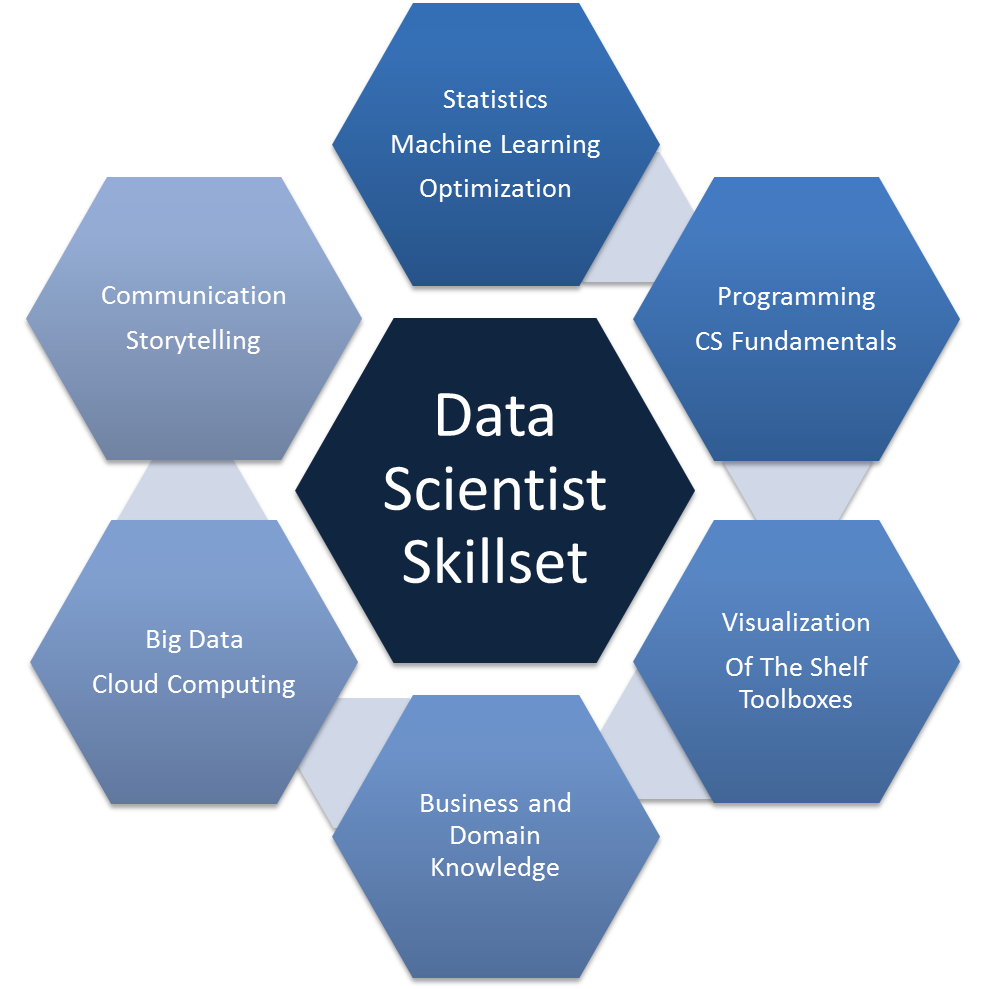
Here are top data science skills that potential data scientists must have to be competitive in this growing marketplace. Every company will value skills and tools a bit differently, but if you have experience in these areas you will be making a strong case for yourself as a data science candidate.
Technical Skills: Analytics
·
Education – Data scientists are highly educated –
88% have at least a Master’s degree and 46% have PhDs – and while there are
notable exceptions, a very strong educational background is usually required to
develop the depth of knowledge necessary to be a data scientist. Their most
common fields of study are Mathematics and Statistics (32%), followed by
Computer Science (19%) and Engineering (16%).
·
SAS
and/or R – In-depth
knowledge of at least one of these analytical tools, for data science R is
generally preferred.
Technical
Skills: Computer Science
· Python Coding – Python is the most common coding
language I typically see required in data science roles, along with Java, Perl,
or C/C++.
· b · Hadoop
Platform – Although this
isn’t always a requirement, it is heavily preferred in many cases. Having
experience with Hive or Pig is also a strong selling point. Familiarity with
cloud tools such as Amazon S3 can also be beneficial.
· · SQL
Database/Coding – Even though
NoSQL and Hadoop have become a large component of data science, it is still
expected that a candidate will be able to write and execute complex queries in
SQL.
· · Unstructured
data – It is critical
that a data scientist be able to work with unstructured data, whether it is
from social media, video feeds or audio.
Non-Technical
Skills
·
Intellectual
curiosity – No doubt you’ve seen
this phrase everywhere lately, especially as it relates to data
scientists.
·
Business
acumen – To be a data scientist
you’ll need a solid understanding of the industry you’re working in, and know
what business problems your company is trying to solve. In terms of data
science, being able to discern which problems are important to solve for the
business is critical, in addition to identifying new ways the business should
be leveraging its data.
·
Communication
skills – Companies searching
for a strong data scientist are looking for someone who can clearly and
fluently translate their technical findings to a non-technical team, such as
the Marketing or Sales departments. A data scientist must enable the business
to make decisions by arming them with quantified insights, in addition to
understanding the needs of their non-technical colleagues in order to wrangle
the data appropriately.
No comments:
Post a Comment